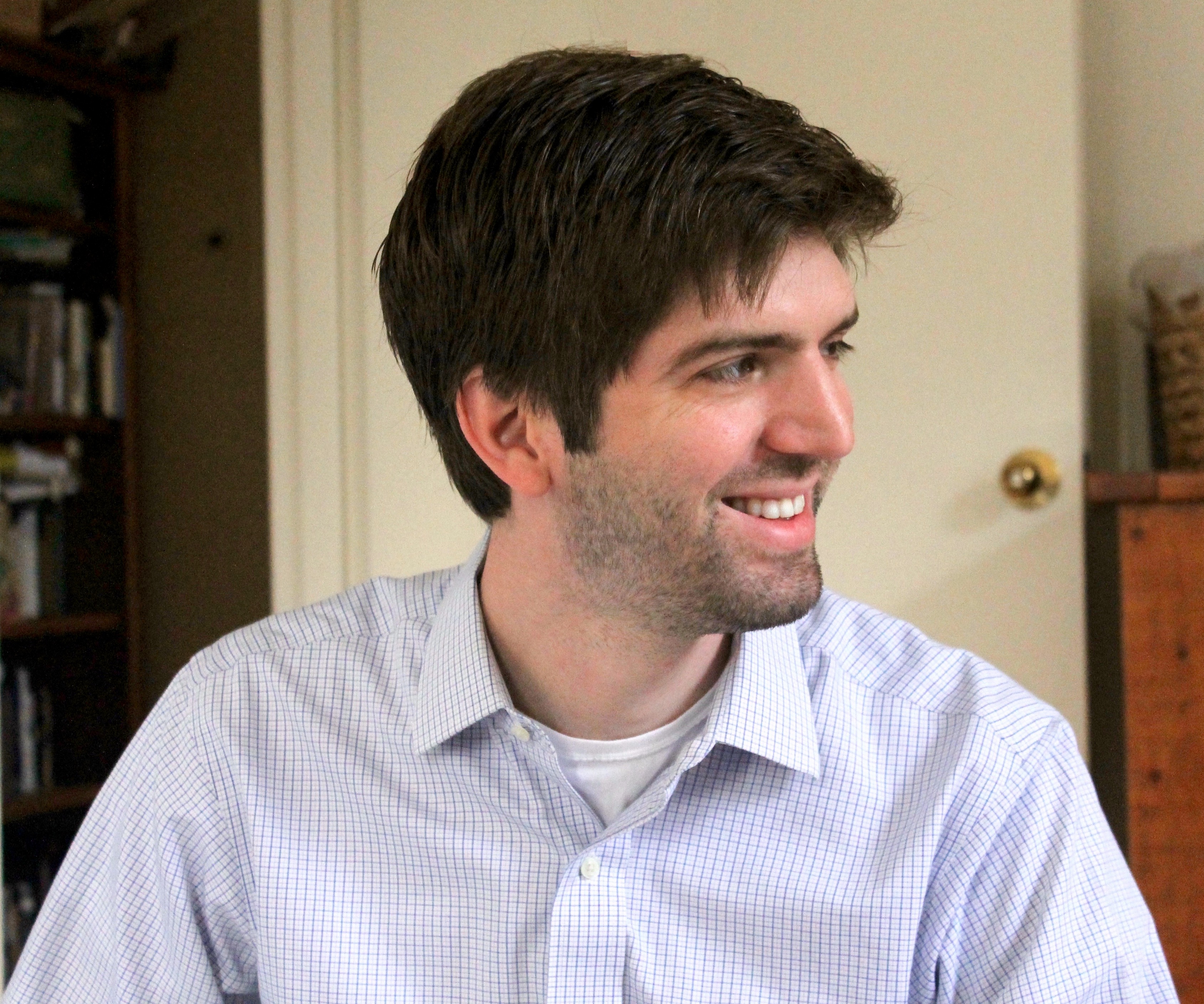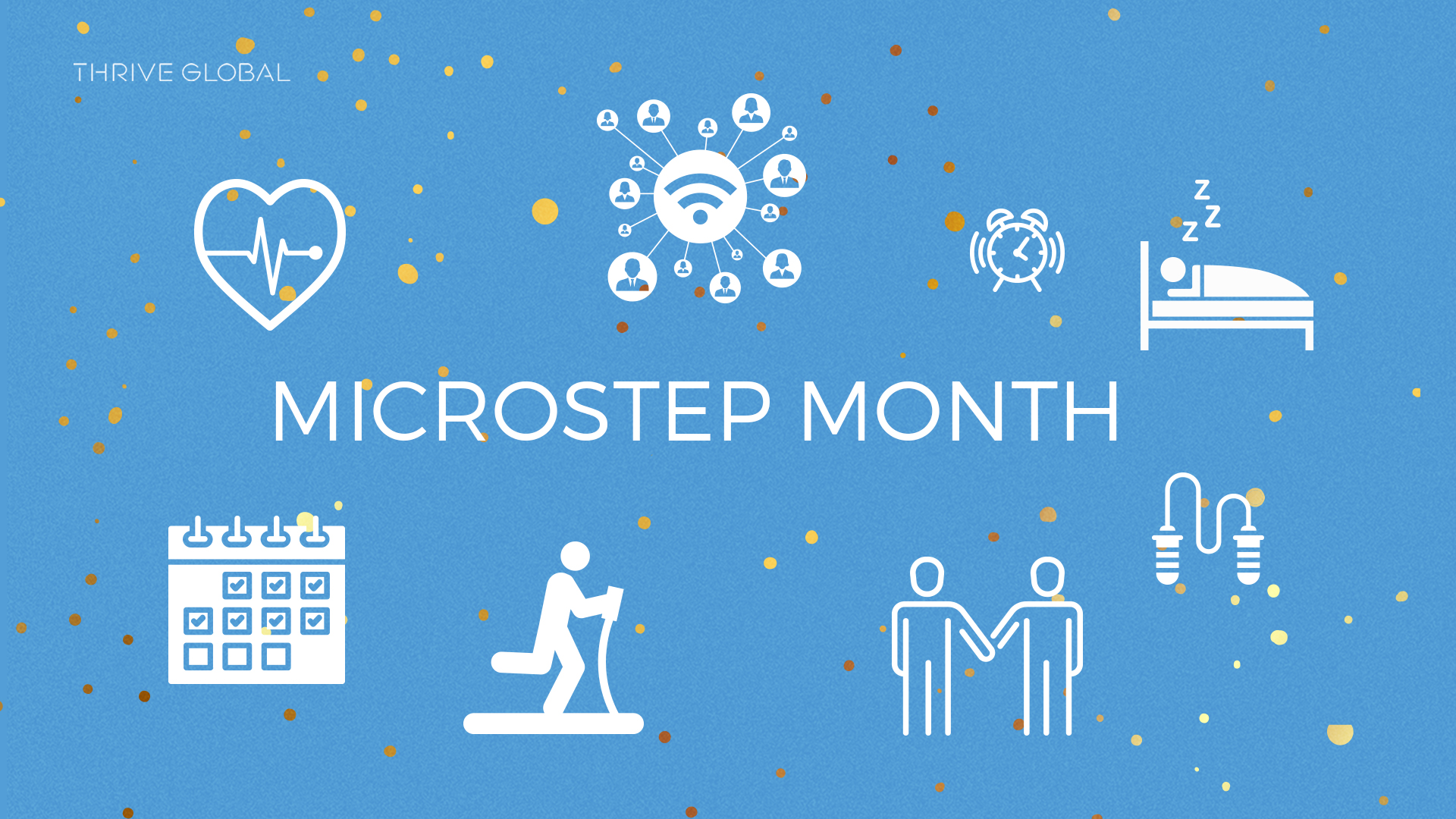Research shows that nearly half of New Year’s resolutions fizzle before February. Instead of setting overly ambitious New Year’s resolutions that make you feel bad when you can’t accomplish them, we want to help you revolutionize your approach to resolutions with Microsteps, Thrive’s science-backed, too-small-to-fail mini behavior changes that you can integrate into your life right away, making it easier to meaningfully form new habits.
We challenged Thrive staffers to test a Microstep for 32 days and write about their progress. The result? Some very honest and encouraging Microstep Diaries, like this one.
Thrive staffer: Greg Beyer, Director of Corporate Content
Microstep: Exercise! Any kind of physical activity helps you sleep better.
Why I chose it
Every year when I see my doctor for my annual exam, he asks me if I’m getting exercise. And every year I say something like, “I live in Manhattan. I walk everywhere.” He’s not impressed. He says, “That’s great. What else?” Last year he gave me some tips for simple workouts you can do anywhere — no gym membership, no big time commitment. This year I’m going to surprise him with the news that I’ve taken his advice. I don’t have time to go to the gym, and the best opportunity for exercise I have is right when I wake up, so I’ve committed to 50 pushups and 50 jumping jacks as soon as I wake up. My hope was to make this ritual into something so automatic I don’t even think about it.
A head start
I’m cheating slightly, because I’ve already started doing this on my own. I’ve been satisfied with my discipline — I’m doing it almost every day. But my hope is that by treating it as a daily Microstep I’ll keep up the momentum, turn it into a true daily habit, and increase the rigor as time goes on.
Feeling physically — and mentally — stronger
I probably average five out of seven days a week. Sometimes I’m not feeling it. I play basketball one night a week, and run pretty hard during those games. So some Tuesday mornings I’m sore and let myself off the hook. I do feel physically stronger, and my endurance is probably better, but the satisfaction is more mental.
Sticking with it
I like the discipline. I said I was going to do something, and I did it. And I feel like I can build on my current ritual to make it more rigorous. Best of all, on many mornings I felt motivated to go beyond what I required of myself, sometimes doubling the routine.
Embracing the “smallness”
There really is something important about the “micro” aspect of a Microstep. It’s that smallness that helps you get past all the excuses you make for yourself. Every morning, I came up with all sorts of excuses not to do my Microstep: I was running late, I had better things to do, today just wasn’t the day. But since my workout took three minutes tops, there was never any legitimate excuse not to do it. My Microstep commitment was definitely successful, and I plan to keep going.
Follow us here and subscribe here for all the latest news on how you can keep Thriving.
Stay up to date or catch-up on all our podcasts with Arianna Huffington here.
More Microstep Month Diaries:
I Made a Small Change in My Pre-Bedtime Ritual for 32 Days and the Results Were Amazing
I Journaled Every Night for 32 Days, and Turned It Into a Sweet Gift for My Partner
Arianna Huffington: Give Your New Year’s Resolutions a Boost by Joining Us For Microstep Month


